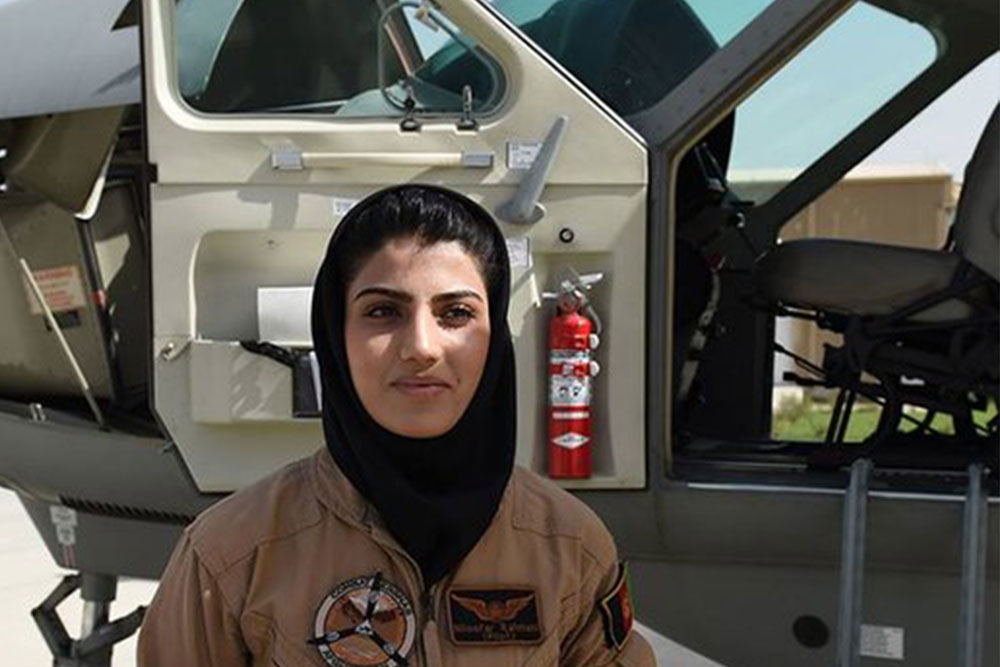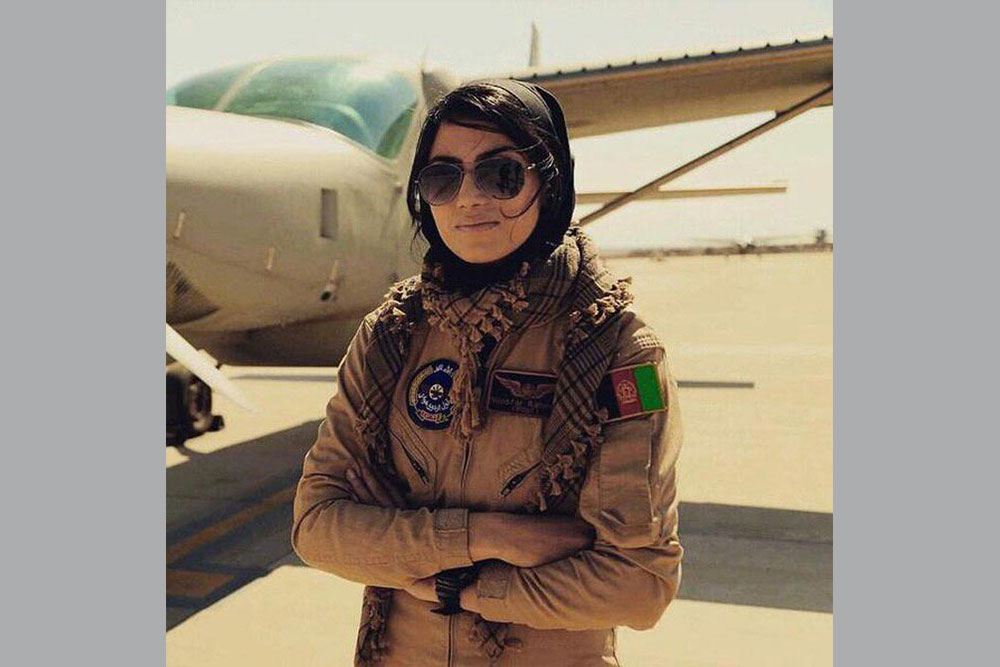The Taliban has recently come out to assure the world that even though they are now in control of Afghanistan after 20 years, they will respect women’s rights within the ambit of Islamic law. Most people who are aware of the Taliban’s history of women’s rights violations are simply not buying this assurance, and 29-year-old Niloofar Rahmani is one of them.
In 2013, Rahmani became the first woman fixed-wing pilot in Afghanistan’s Air Force, a feat no other woman was given the chance to accomplish in more than 30 years. She did this despite receiving constant death threats from the Taliban—yes, even before they regained power in Afghanistan, the Taliban was issuing threats to brave Afghan women who were making their mark in uncharted waters, whether it was in politics or the military.
Afghan Women Who Fly
In previous interviews, Rahmani had revealed that she found inspiration from the lives of Latifa and Laliuma Nabizada, the first women helicopter pilots of Afghanistan. The Nabizada sisters had qualified as helicopter pilots in the Afghan Air Force in 1991 and participated in active duty until the Taliban came to power in the mid-1990s. They went into hiding in 1996, and escaped to Pakistan in 2000, before returning to Kabul after the fall of the Taliban.

Rahmani left Afghanistan in 2015 for an 18-month aviator’s training course in the US, and a year later, she sought asylum in the US as threats against her life and family increased. In 2018, she was finally given asylum, officially, in the US, where she has remained since. She was awarded the International Women of Courage Award in 2015 by the US State Department and has remained in exile throughout.
Rahmani’s Take On Taliban’s Return To Power
And yet, given her experiences, Rahmani has chosen to speak out in recent weeks about what the Taliban’s return to power would mean to Afghan women. “The Taliban war is against women,” she told Brut in an interview. “The first thing they do, they take away everything from a woman.” She offered up her own example to prove this point: “I was the symbol of freedom of women, in Afghanistan. As a woman, that I raise my voice, and tried to against what they believe, and unfortunately, it ends up risking my life, and my family’s life.”

The situation in Afghanistan is already dire, she explained in the interview. “Already, in Kabul, you see no sign of any woman. Any pictures of a woman in the stores and the walls, it has been already blacked out. There is no woman in the city,” she said. Rahmani also shared her fears for her nation, its women, and her own family in another interview with Fox News a few days ago. “Unfortunately, my family is still there. And since I have heard what happened in Afghanistan, I cannot sleep, I cannot get my mind together. I am so in fear for their security. And, of course, it hasn’t been only about me,” she said.
However, Rahmani is still holding out some hope. “Honestly, I’m not saying that I’m going to give up hoping. I will still hope for a better future, and a better future for the girls and women in Afghanistan,” she said.